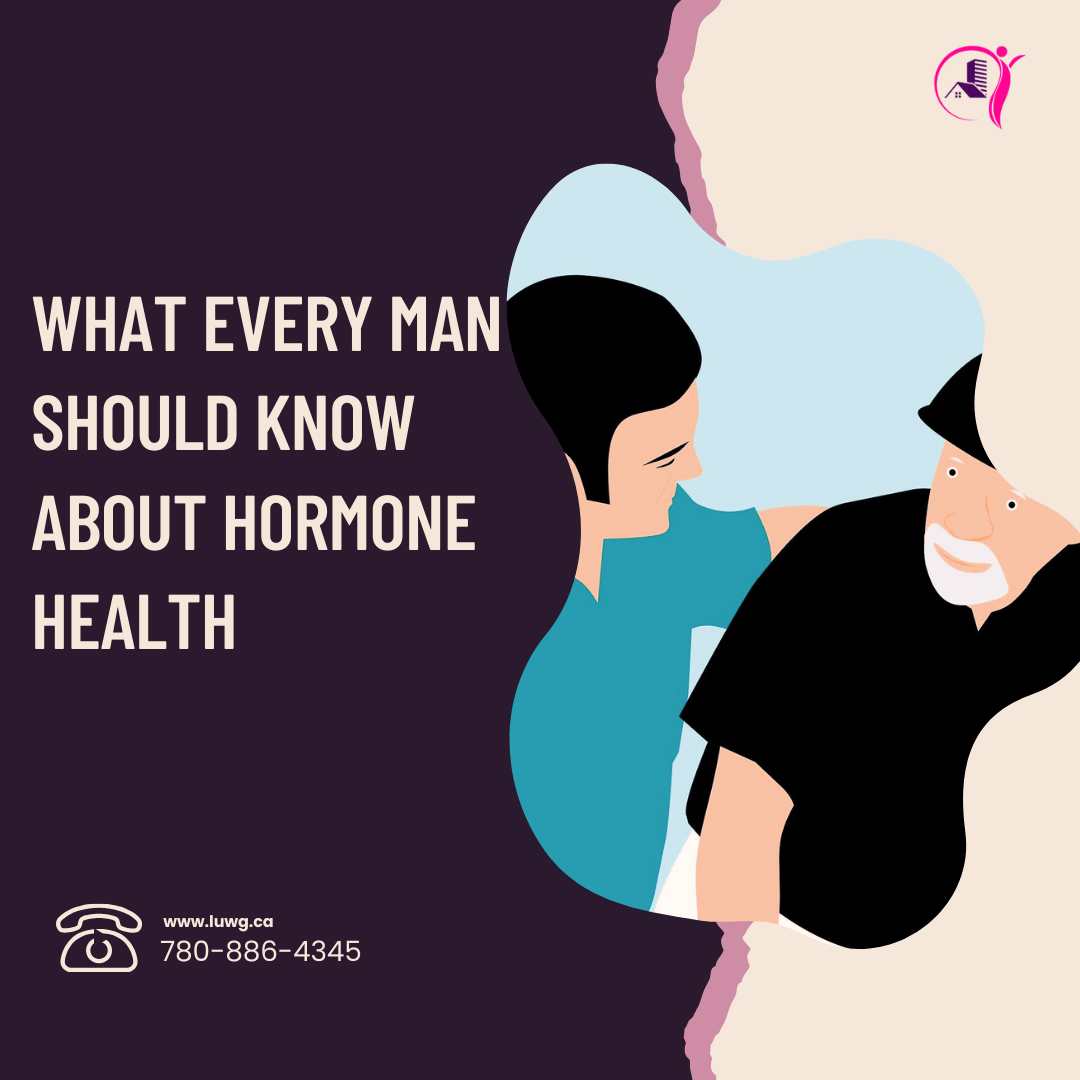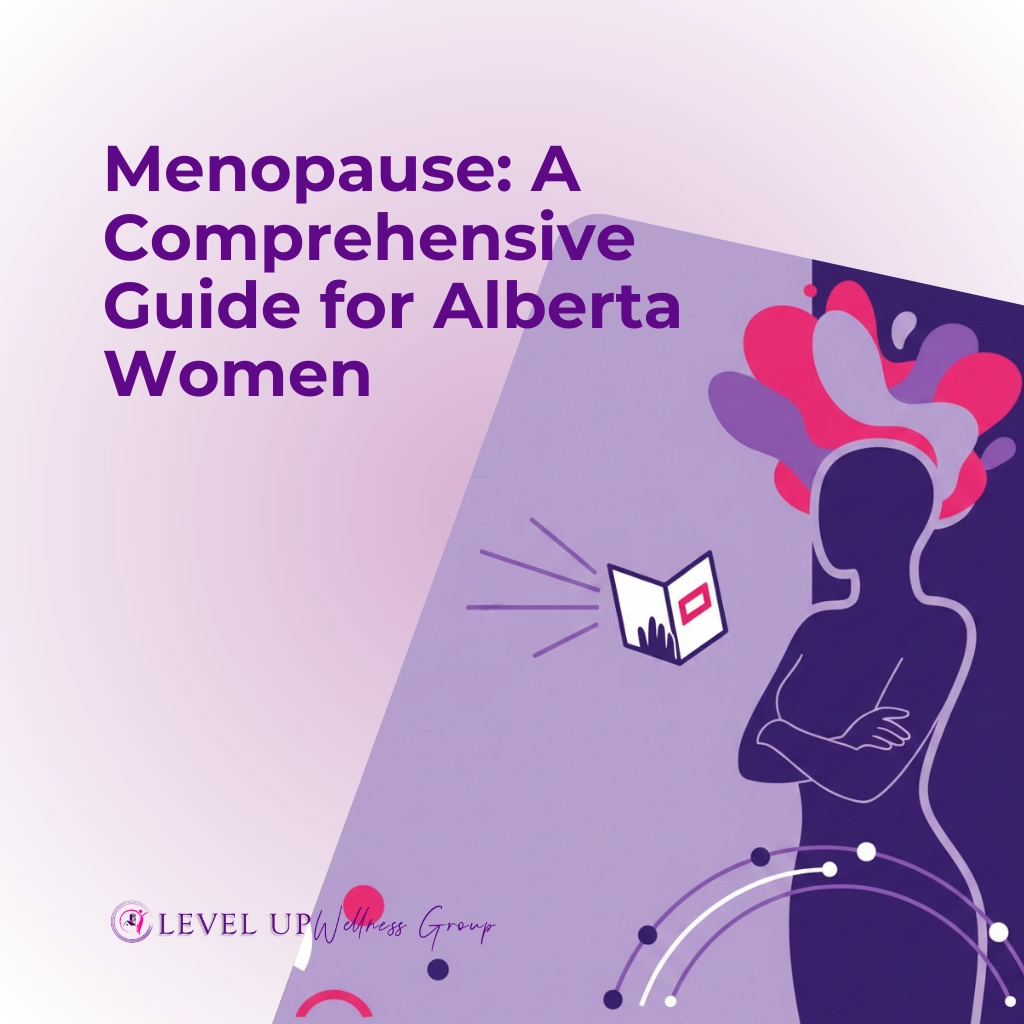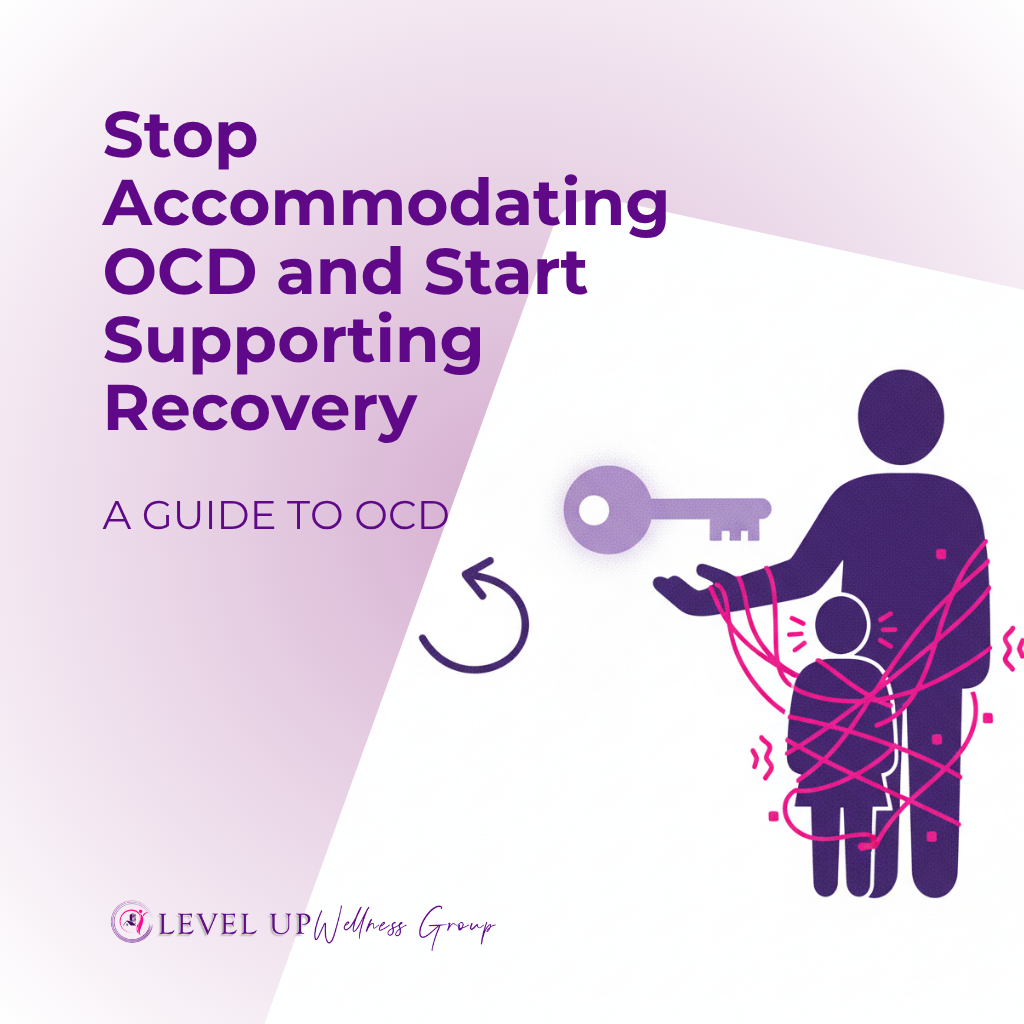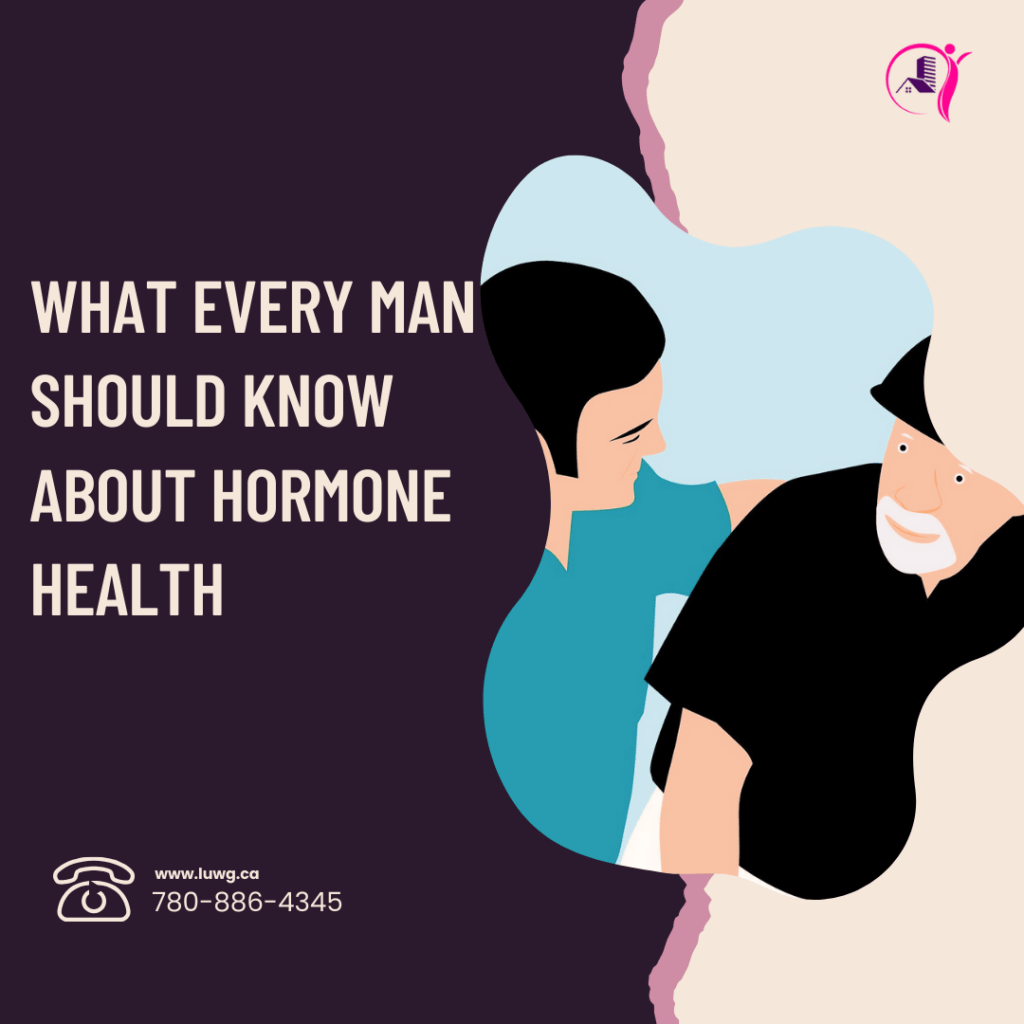
Hormone health is a cornerstone of overall wellness for men, yet it often goes overlooked. Hormones influence energy levels, muscle development, mood, and sexual health—key aspects of a vibrant life. Unfortunately, hormonal imbalances are frequently mistaken for normal aging.
At Luwg, we specialize in supporting men’s hormone health with personalized solutions. Here’s what every man needs to know about maintaining hormonal balance and vitality.
For more information on Male Hormone Health:
The Role of Hormones in Men’s Health
Hormones are chemical messengers that control essential functions in the body. The primary hormones influencing men’s health include:
Testosterone
Often referred to as the “male hormone,” testosterone is vital for muscle mass, bone density, libido, and mood regulation.
Cortisol
Known as the “stress hormone,” cortisol affects energy, sleep, and metabolism.
Thyroid Hormones
These regulate metabolism, energy levels, and overall cellular function.
Insulin
Essential for blood sugar regulation, insulin also plays a role in energy and weight management.

Signs of Hormonal Imbalance in Men

1. Low Energy Levels
Persistent fatigue, even after a full night’s sleep, could indicate low testosterone or thyroid dysfunction.
2. Reduced Muscle Mass
Difficulty building or maintaining muscle despite regular exercise may be due to declining testosterone.
3. Increased Body Fat
Hormonal imbalances, particularly involving cortisol and insulin, can lead to stubborn weight gain.
4. Mood Changes
Irritability, anxiety, or feelings of depression can often be traced back to hormonal fluctuations, especially with testosterone and cortisol.
5. Low Libido
A decrease in sexual desire or performance is a common sign of hormonal imbalance in men.
6. Sleep Issues
Difficulty falling or staying asleep may result from elevated cortisol or low testosterone levels.
7. Hair Loss
Thinning hair or male-pattern baldness can sometimes be linked to hormonal shifts, particularly with dihydrotestosterone (DHT), a derivative of testosterone.
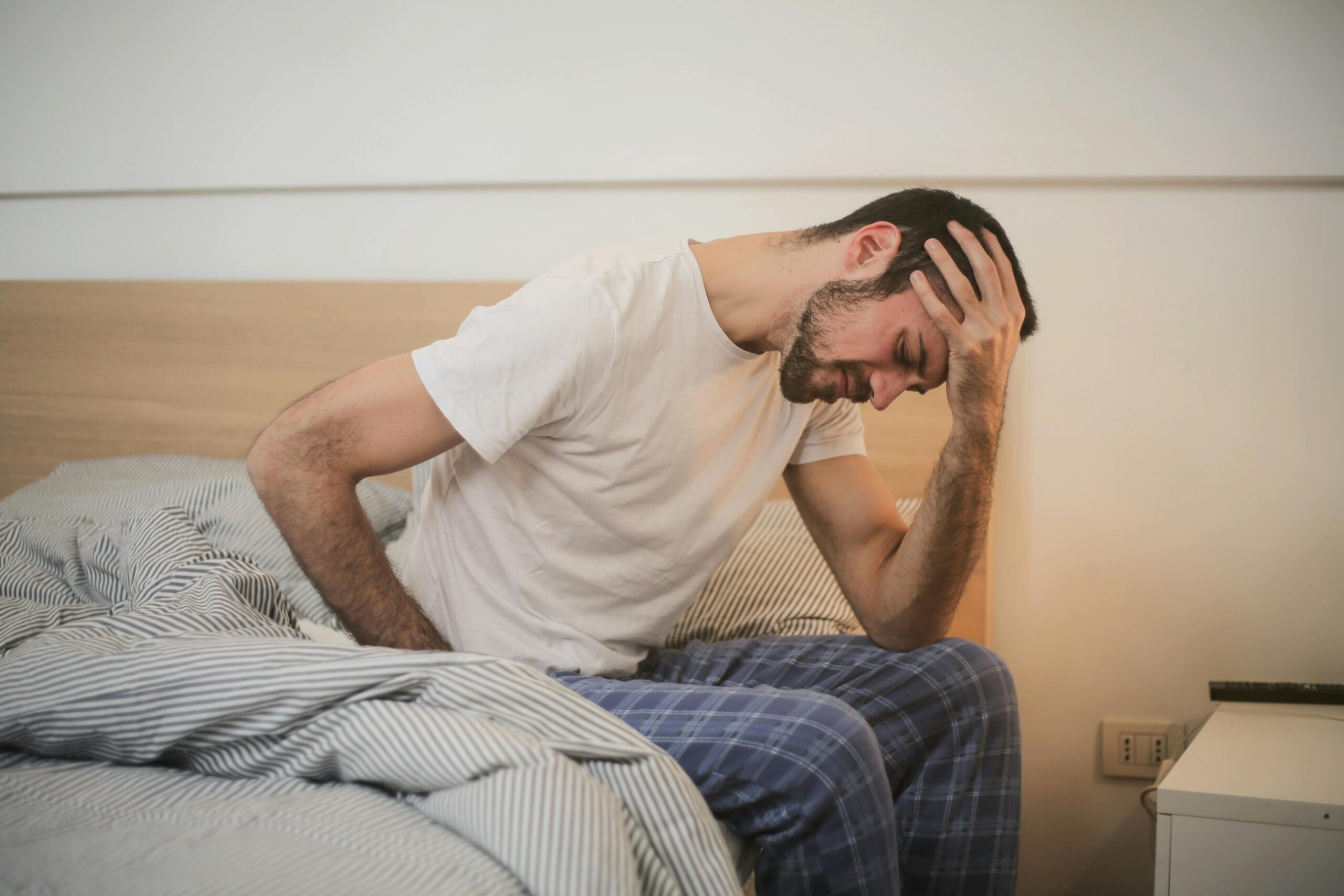
Causes of Hormonal Imbalances in Men
Hormonal imbalances in men can arise from several factors, including:
- Aging: Testosterone levels naturally decline with age, starting in the late 20s or early 30s.
- Stress: Chronic stress elevates cortisol, disrupting the balance of other hormones.
- Diet: Diets high in processed foods and sugars can lead to insulin resistance and other hormonal issues.
- Lack of Exercise: A sedentary lifestyle contributes to reduced testosterone production.
- Sleep Deprivation: Poor sleep quality interferes with hormone regulation, including testosterone and cortisol.
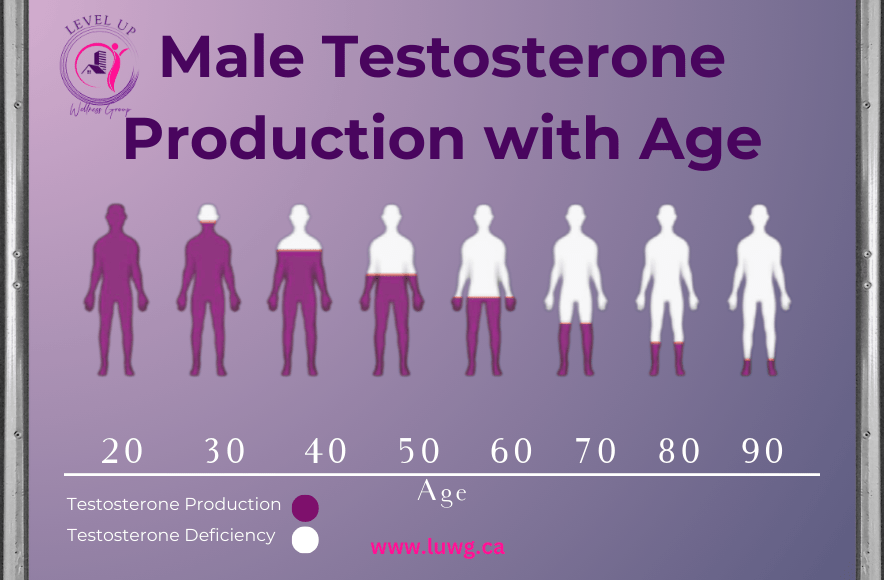
Learn more about male hormone Health Services:
How to Maintain Hormonal Balance
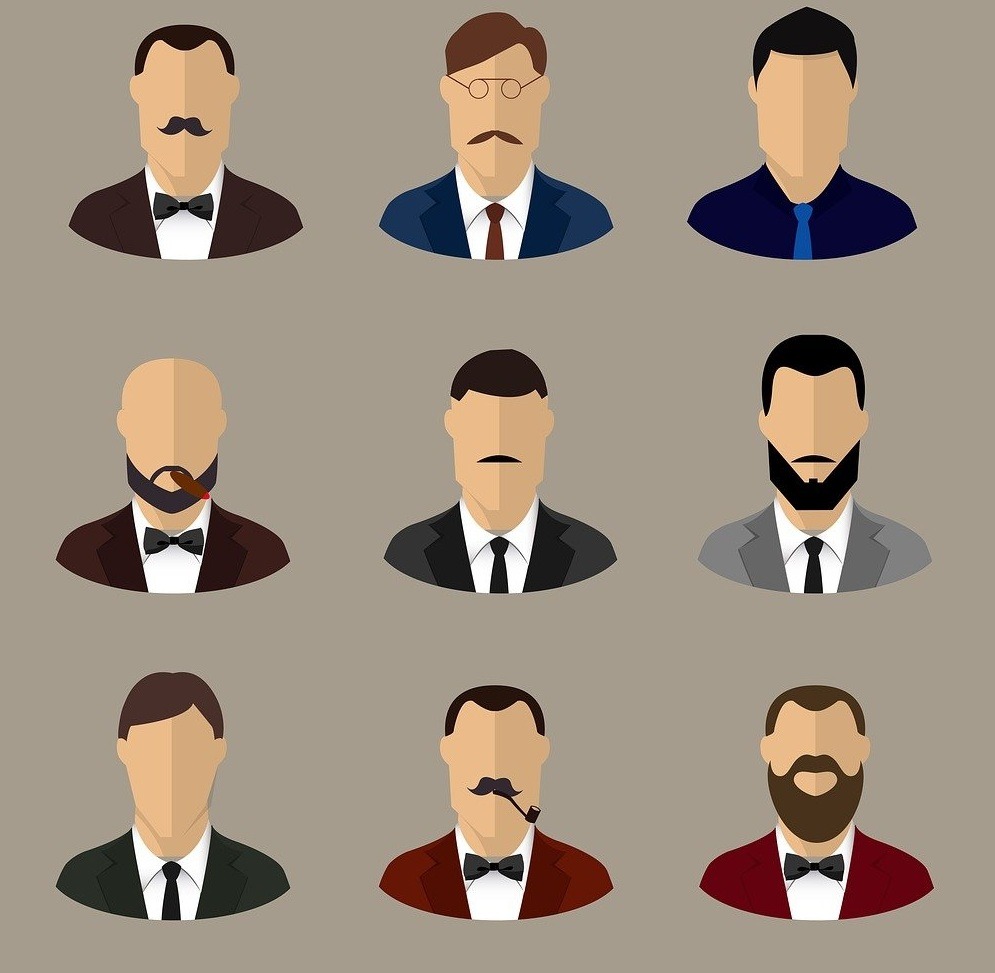
1. Prioritize Regular Exercise
Strength training and high-intensity interval training (HIIT) are particularly effective at boosting testosterone levels.
2. Manage Stress
Incorporate stress-reducing activities like mindfulness, meditation, or yoga to regulate cortisol levels.
3. Optimize Nutrition
Focus on a balanced diet rich in lean proteins, healthy fats, and complex carbohydrates. Include foods that support hormonal health, such as eggs, nuts, and leafy greens.
4. Get Quality Sleep
Aim for 7-8 hours of restorative sleep per night to allow your body to regulate hormone production effectively.
5. Seek Professional Help
If symptoms persist, consult a healthcare provider for hormone testing and personalized treatment options.
FAQs
What age should men start monitoring hormone health?
Hormone monitoring can begin as early as the late 20s or 30s, especially if symptoms like fatigue or low libido appear.
How are hormonal imbalances diagnosed?
Diagnosis typically involves blood tests to measure levels of testosterone, cortisol, thyroid hormones, and other markers.
Can lifestyle changes help with hormonal imbalances?
In many cases, yes. Regular exercise, a balanced diet, stress management, and quality sleep can significantly improve hormonal health.
Are there medical treatments for hormonal imbalances in men?
Yes, options like testosterone replacement therapy (TRT) and other treatments may be recommended based on individual needs.
Conclusion
Take control of your health and reclaim your vitality. At Luwg, we offer expert hormonal health services tailored to men’s unique needs. Book a consultation today to learn how you can achieve optimal balance and energy. Don’t let hormonal imbalances hold you back—start your journey to better health now!


